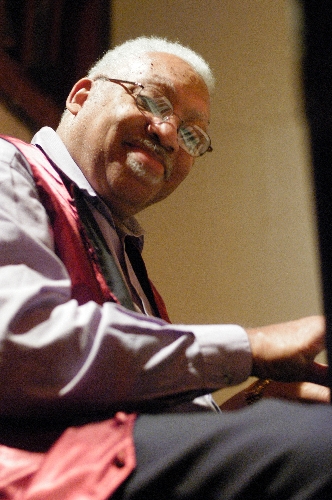Symposium looks at global significance of jazz

He’s not the father of modern jazz. But Ellis Marsalis Jr. is the father of Wynton and Branford Marsalis, and that’s pretty close. (Two of his other six sons, Del- feayo and Jason, also are successful jazz musicians.)
"I didn’t really steer them toward jazz," Marsalis says. "It’s just that the opportunity was there."
Marsalis, 76, is a former music educator and a respected musician in his own right, who still plays piano with his own quartet around his native New Orleans. He’s scheduled to speak tonight at Doc Rando Hall at the University of Nevada, Las Vegas. Presented for free by the Black Mountain Institute, the "Jazz: America’s Gift to the World" symposium will address the state of the musical form.
"There are a lot of things that need to be addressed, which could stand some serious research," Marsalis says.
The other panelists are author Ishmael Reed, UNLV jazz studies director Dave Loeb and singer Marlena Shaw, who also moderates. A jazz combo of six UNLV jazz students will perform standards between discussion topics. (Marsalis says he "may" sit in.)
Jazz, as most observers of pop culture realize, is in a fairly long-standing rut. (Las Vegas doesn’t even have a dedicated club anymore.) This was far from true when Marsalis began performing it six decades ago in his native New Orleans.
"Frank Sinatra was a pop singer," Marsalis says, "as was Ella Fitzgerald and Billie Holiday."
In the ’50s, jazz was so pervasive, even the Beat Poets claimed it. No other music, until rock in the ’70s, could say it served both as the soundtrack to the establishment and the underground.
"Jazz has so many levels, from its most primitive to its most intellectual," Loeb explains.
Yet today’s jazz is almost the exclusive province of academics and nostalgia buffs.
"I think what we need to do is make sure we’re still reaching those primitive levels in young people," says Loeb. "This is an ongoing struggle."
Marsalis also is concerned, but seems more fatalistic.
"There may be some kind of a renaissance," he says. "But I don’t think you bring that about. It just happens through a combination of things."
Perhaps we should keep Marsalis’ DNA, though, just to ensure that our future is populated with successful jazz musicians.
Marsalis laughs.
"I don’t even know what DNA means," he says. "I understand that it gets people out of jail."
Contact reporter Corey Levitan at clevitan@review journal.com or 702-383-0456.